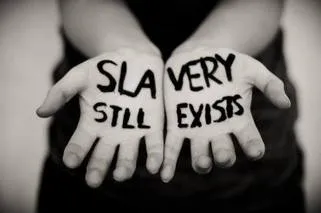Author: Commissioner R. Gil Kerlikowske
President Barack Obama calls human trafficking an outrage “which must be called by its true name – modern slavery.” Nearly every country is affected – whether as a country of origin, of transit, or destination of victims.
Human trafficking is not something that only happens in some far-off country. It’s right under our noses. Recently, 286 people were arrested in Los Angeles in a raid that rescued children who were victims of sexual exploitation. The following day, authorities shut down a human trafficking operation that exploited dozens of women in Maryland.

CBP’s Blue Lightning Initiative (BLI) is part of the Department of Homeland Security’s Blue Campaign. Launched in 2013 in partnership with the Department of Transportation, the BLI focuses on training airline personnel – ranging from ticket agents to flight crews – on what to look for and what to do if they suspect a case of human trafficking. To date, five airlines are official Blue Lightning Partners: Allegiant Air; Delta; JetBlue; Silver Airways; and SkyWest. And we hope that these five are just the beginning.
CBP is uniquely positioned to recognize and intercept human traffickers, and to rescue their victims as they travel across our borders. Officers and agents are on the front lines, processing international travelers and apprehending individuals trying to illegally cross our borders. All of CBP’s officers and agents take Human Trafficking Awareness training annually so they stay current on what to look for in detecting this activity.
Providing the airline industry with BLI training is a natural fit with our law enforcement mission. CBP combats transnational criminal organizations; drug smugglers and traffickers of every stripe; large-scale counterfeiting operations; and all kinds of fraud involving customs and immigration. These are typically huge operations – sophisticated networks that often take years to disrupt and dismantle. Human trafficking is no different – it’s an organized and highly profitable criminal enterprise.
CBP is also enforcing the prohibition of goods manufactured with child, convict, or forced labor – many of whom are victims of human trafficking. A new law enacted earlier this year mandates that goods made with these deplorable labor practices are no longer allowed into the country simply to meet U.S. demand. I’ve already signed a number of Withhold Release Orders for certain products made abroad with convict and forced labor. These enforcement actions rightly place CBP at the forefront of promoting human rights, and send a powerful signal to manufacturers and producers around the world.
Human trafficking is a heinous crime and the importation of goods produced by people who have been enslaved is equally offensive. CBP is committed to making a difference by working with our travel and trade stakeholders to stop this outrage.
You can help. If you see any activity that you suspect might involve human trafficking, contact law enforcement. Help is available 24/7 in more than 300 languages and dialects through the toll-free line at 1-866-347-2423. Or report online at www.ice.gov/tips.

